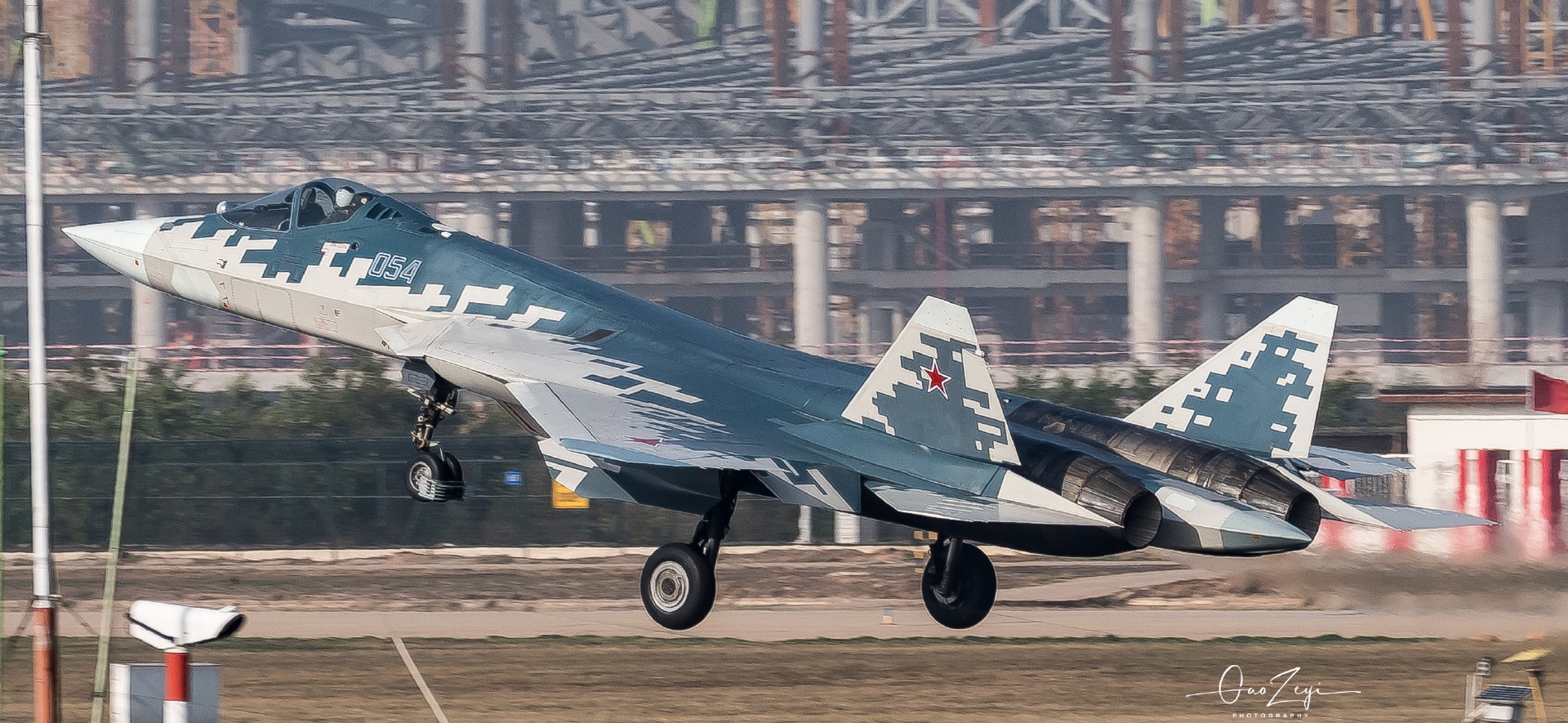For the First Time, Russia’s Fifth-Generation Su-57 Fighter Jet Arrives in China
Designed to compete with the United States’ fifth-generation fighters, the F-35 and F-22 Raptor, the Su-57 has garnered significant attention from Chinese media, particularly as it shares the stage with China’s own fighters, including the J-15 and FC-31 (J-35).
(DEFENCE SECURITY ASIA) – For the first time, Russia’s fifth-generation fighter jet, the Su-57, has arrived in China to participate in “Airshow China 2024” in Zhuhai, Guangdong province.
Developed by Sukhoi, the Su-57 is Russia’s most advanced fighter jet, though its production reportedly faces challenges due to stringent economic sanctions from Western nations.
Designed to compete with the United States’ fifth-generation fighters, the F-35 and F-22 Raptor, the Su-57 has garnered significant attention from Chinese media, particularly as it shares the stage with China’s own fighters, including the J-15 and FC-31 (J-35).
The FC-31, China’s second fifth-generation fighter after the J-20 “Mighty Dragon,” is expected to operate from Chinese aircraft carriers in the coming years.
The Su-57’s presence at the Zhuhai airshow highlights the strengthening military ties between Russia and China, especially as Moscow faces mounting pressure from the United States and its allies over its actions in Ukraine.
Video Player
00:00
00:00
By showcasing the Su-57 in China, Russia aims to demonstrate the capabilities of its domestically built fighter to global audiences and potential customers, emphasizing its stealth technology, advanced avionics, and agility in air combat.
Russia is actively marketing the Su-57 to foreign clients who already operate Russian-made fighters, positioning it as their fifth-generation aircraft of choice.
Currently, the global fifth-generation fighter market is dominated by the United States, with hundreds of F-35 jets exported by manufacturer Lockheed Martin to buyers in Asia and Europe.
The U.S.-developed F-22 Raptor, however, remains exclusive to American forces and is not available for export.
The Sukhoi Design Bureau continues to enhance the Su-57, expanding its mission capabilities.

In a statement this year, Sukhoi announced a phased approach to upgrading the fighter.
Starting this year, the Su-57 is being outfitted with a new engine, the Izdeliye 30, which promises greater thrust and fuel efficiency compared to its predecessor, the AL-41F1.
The new engine, which has passed rigorous testing with a thrust of 11,000kg and 18,000kg in afterburner mode, enables the Su-57 to reach a cruising speed of Mach 2.
The upgraded variant with the new engine and additional capability enhancements is designated the Su-57M (Modification).
With the Izdeliye 30 (AL-51F) engine, analysts affirm the Su-57 now fully qualifies as a fifth-generation fighter jet.
Further advancements this year include a new, more powerful radar, enhancing the Su-57’s target detection range and tracking capabilities. UAC has also announced efforts to improve the fighter’s stealth features.
In terms of weapons capability, the Su-57 can carry a range of armaments, from air-to-ground missiles to air-to-air missiles like the KH-59Mk2 and the R-37M.
The R-37M (RVV-BD) air-to-air missile has a range of 300 to 400 km, enabling Russian jets to strike from outside the heavily monitored central and western Ukrainian airspace, where Ukrainian air defenses and NATO early-warning aircraft closely monitor activity.
The long-range R-37M (RVV-BD) or AA-13 is a modern Russian missile, with all components produced domestically by Vympel, a well-known Russian firm specializing in air-to-air missile systems. — DSA



Comments are closed.